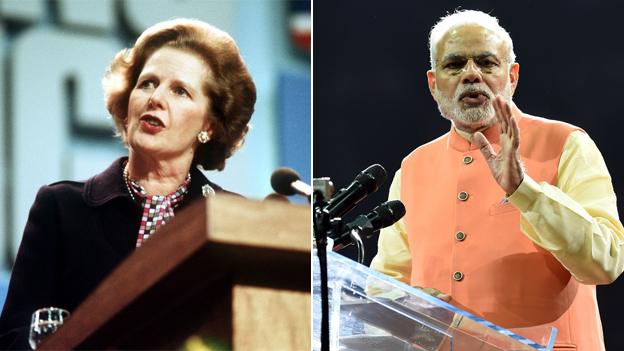India's Narendra Modi woos Iranian leaders
- Published
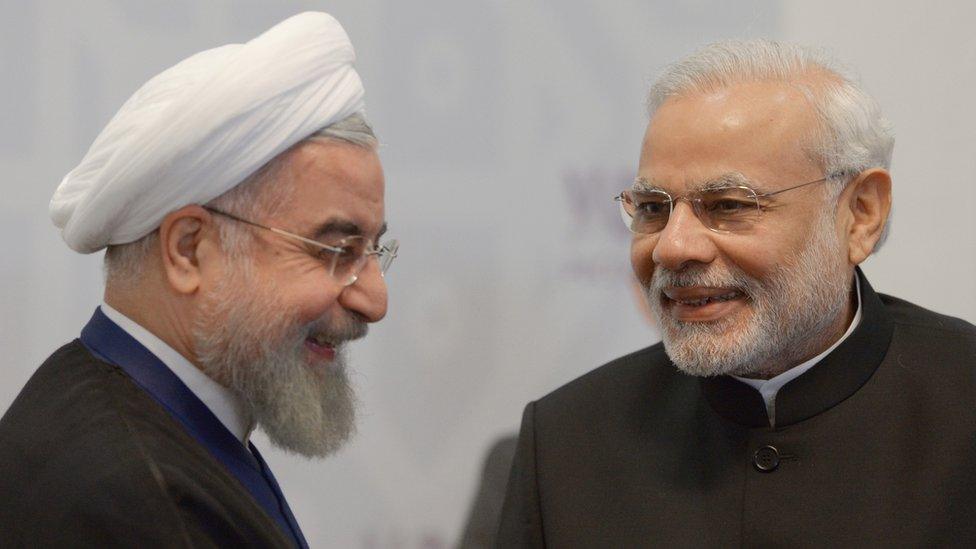
Prime Minister Modi (R) hopes for a constructive dialogue with President Rouhani
When Indian Prime Minister Narendra Modi arrives in Tehran this weekend, he will find out whether it's the beginning of a new era in bilateral ties - or a missed opportunity.
Delhi's relations with Tehran are multi-faceted and complex. The two countries share centuries-old cultural and linguistic links. In modern times, the relationship is more economic and strategic.
Tehran was the second biggest supplier of crude oil to India until 2011-12. Iran is also strategically located in the Gulf, and it offers an alternative trade route to Afghanistan and to Central Asia.
India is home to the world's second highest Shia population, next only to Iran. Iran's influence over an estimated 45 million Shias in India is regarded as significant. With Iran emerging after international sanctions, it offers great investment opportunities to Indian companies.
But the bilateral ties suffered setbacks following international sanctions on Tehran over its nuclear programme. As successive Indian governments moved closer to the US, their Iran policy took a back seat, much to the displeasure of the Iranians.
Iranians were dismayed when India voted against their country at a vote in the International Atomic Energy Agency in 2009. Then India significantly reduced oil imports from Tehran following US pressure.
"That was a bitter lesson for the Iranians. They understood that India would not take Iran's side on any dispute and India would not sacrifice its relations with the US and the West for Iran," says Fatemeh Aman, an Iran-South Asia affairs analyst based in the US.
During his first two years at office, Mr Modi focused more on India's immediate neighbourhood and Indian Ocean rim countries. Relations with the United States and the west were given a priority.
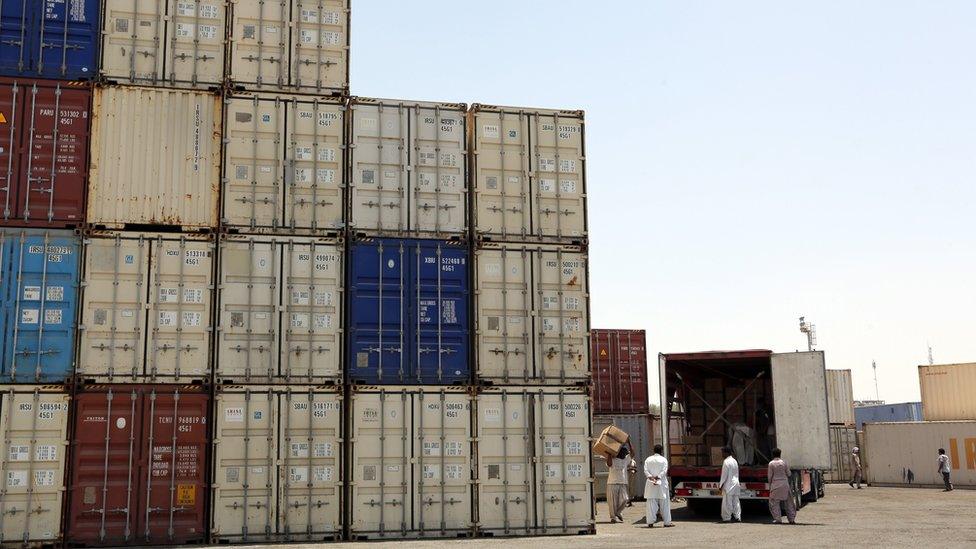
India hopes investment in Chabahar port will provide it with a gateway to Afghanistan
"There is very clear sense in India that he has to engage more with Muslim countries in the region, in the extended neighbourhood. Mr Modi has already been to Saudi Arabia, the UAE and planning to visit Qatar.
"The visit to Iran comes as part of the strategy," says Rahul Roy-Chaudhury, Senior Fellow for South Asia at the International Institute of Strategic Studies in London.
When the international sanctions were in place, India could not pay for the oil it had imported from Iran. It still owes $6.5bn in unpaid dues and Delhi is still finding a way to facilitate the payment.
Western banks are still reluctant to do business with Iran when some of the US sanctions are still in place.
India is aware that China is making inroads into Iran to rebuild the economy devastated by the sanctions. The Chinese president, Xi Jinping, visited Iran in January this year to firm up business ties. Beijing is already Iran's largest trading partner.

Much travelled Modi:
As of May 2016, Prime Minister Modi has made 40 foreign trips on five continents since his election in 2014
State visits in 2015: Seychelles, Mauritius, Sri Lanka, France, Germany, Canada, China, Mongolia, South Korea, Bangladesh, Uzbekistan, Kazakhstan, Turkmenistan, Kyrgyzstan, Tajikistan, UAE, Ireland, UK, Singapore, Russia, Afghanistan
State visits in 2016: Belgium, Saudi Arabia, Iran, US (to come).

With the security situation in Afghanistan deteriorating, India is also looking to find various ways to maintain its foothold in the war-torn nation to counter Pakistani influence. With the land route to Afghanistan through Pakistan unavailable, it's looking at Iran to trade with Afghanistan.
India is investing more than $150m to develop Chabahar port in south-eastern Iran. It hopes the port will give a transit route to Afghanistan.
In the future, it also wants to bring gas from Central Asia and then transport it to India. The project will also give sea access to Afghanistan.
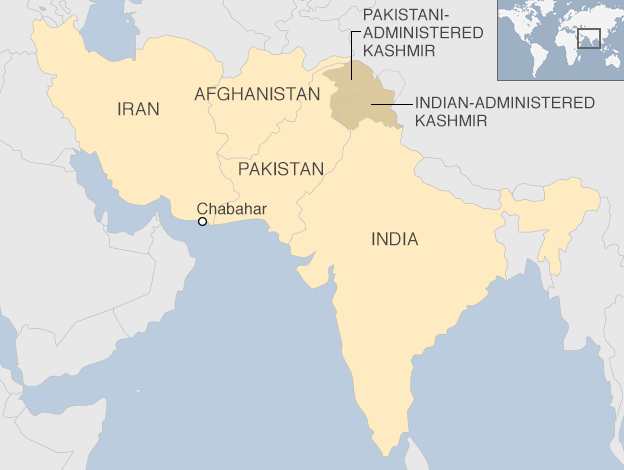
"From India's perspective, Chabahar port is a gateway to Afghanistan. From Chabahar there is a road which goes all the way to Afghanistan and it will link up with a road which India has already built inside Afghanistan. In a way, India is ensuring that there could be no exit strategy from Afghanistan," says Mr Roy-Chaudhury.
Mr Modi plans to visit Kabul in June and he is expected to sign a trilateral trade agreement with Iran and Afghanistan for Chabahar port.
During his meeting with the Iranian president Hassan Rouhani, Mr Modi would want to assure that India is keen to establish deeper and long-standing ties.
But Iranians may be a bit wary given their past experience.
- Published26 February 2016
- Published15 July 2015
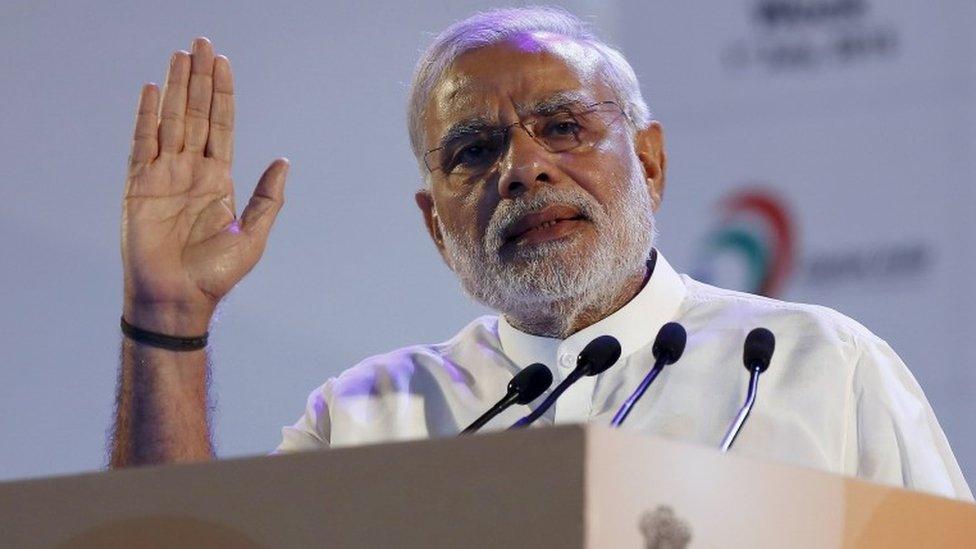
- Published27 February 2015
